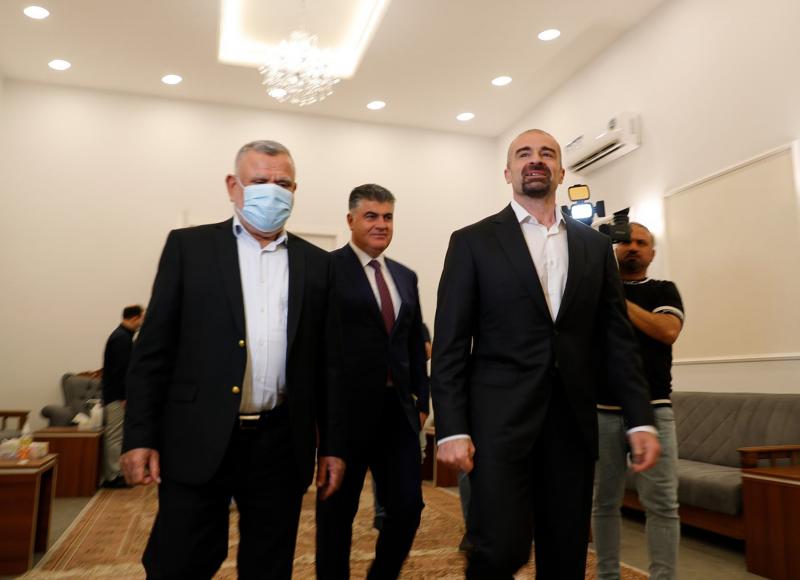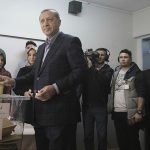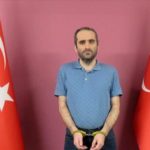BAGHDAD – The visit to Baghdad by a delegation of the Patriotic Union of Kurdistan (PUK), the Kurdish nationalist party founded by the late President Jalal Talabani, reflected a tendency by the PUK to openly ally itself with parties and militias loyal to Iran in preparation for the Iraqi parliamentary elections, which are expected to be held next October.
This is a new development as Kurdish parties and groups used to keep their alliances within the Kurdish fold so as to preserve the appearance of unity inside the Iraqi parliament.
The party delegation headed by Bafel Talabani met the leaders of the Shia political blocs in Baghdad, hoping to draw a nexus of new alliances.
The head of the Patriotic Union of Kurdistan bloc in the Iraqi parliament, Alaa Talabani, said that the Al-Fateh alliance is the closest Iraqi party to the PUK and that an alliance between them is expected after the elections.
The Al-Fateh Alliance is made up of Iranian-backed Shia parties and militias and is headed by Hadi al-Amiri, the leader of the Badr Organisation.
“In the National Union, we will not forget our old friends,” Talabani said after meeting Amiri, and “we will always be allies, now and after the elections. The closest of alliances and parties to us is the Al-Fateh Alliance.”
She pointed out that “the Union will continue to work with the Al-Fateh Alliance until the elections, besides forging a coalition at a post-election stage.”

Well-informed Iraqi political sources explained to The Arab Weekly that the PUK’s move has to be viewed against the background of the stance by the Kadhimi-Sadr-Barzani alliance towards Iran, a stance that is at variance from the PUK’s proximity to Tehran as a strategic ally. This has pushed the PUK to seek a rapprochement with the Al-Fateh bloc, which is increasingly perceived as representing Iranian interests in Iraq.
The same sources said that Iran, the historical ally of the Patriotic Union of Kurdistan, welcomes any support for its loyal political bloc, which consists mainly of the Al-Fateh Alliance, as the Kurdistan Democratic Party decided to ally itself with the rival bloc of Kadhimi and Sadr.
The Kurdistan Democratic Party, led by Massoud Barzani, tends to agree with the Sairoon bloc, which is supported by the leader of the Sadrist movement, Muqtada al-Sadr, while the Patriotic Union appears closer to a pact with the Al Fateh Alliance and the State of Law coalition headed by Nuri al-Maliki, leader of the Islamic Dawa Party.
After meeting the Kurdish delegation headed by Bafel, the son of the late Iraqi President Jalal Talabani, Maliki said that there is an “old” alliance with the Patriotic Union of Kurdistan dating back to the era of Talabani’s father, addingg, “We are allied now and will be after the elections, and this is not new but is from previous times.”
An Iraqi MP has however described the prospective alliances between Shia and Kurdish parties as akin to “opening a new chapter with a friend who tends to practice blackmail against a particular side that is not confident it has full legitimacy”.
The MP, who preferred not to be named, told The Arab Weekly that “the side in question is the Shia parties whose sectarian alliance is no longer able to guarantee support of the street for next elections that are considered by many to be a turning point in the political history of post-occupation Iraq.”
He added, “The new relationship, like the old one, is based on expediency. The elections seem to be a front for such a motive. However, there is no indication that the two parties will rebuild the lost trust between them, in addition to the presence of many sticking points where their interests still collide.”
He pointed out that “the Shia side is now more than ever willing to offer concessions to the Kurdish side, not at the expense of its interests but at the expense of Iraq’s interests, as the Kurds can provide a civil cover away from sectarianism and embellished with a nationalist dimension.”
He stressed that Shia alliances, whether with Talabani’s party or with Barzani’s formation, will only exacerbate inter-Shia dissensions as the two Kurdish allies in question are constantly at odds.
Kifah Mahmoud, the media adviser to Masoud Barzani, said that in recent years in Baghdad, as in Iraqi Kurdistan, most of the large alliances have been split by divisions.
He noted the division of the Shia alliance, as well as that of the Kurdistan Alliance, which turned into a group of blocs that entered the elections with divided ranks.
Mahmoud added in a statement to The Arab Weekly that the time is long gone when an alliance from the Kurdistan region would include all political players. The Kurdish actors, like the rest of the Iraqi political alliances, have turned into groups of disparate blocs or parties.

Several months ago, there were intense meetings between the Kurdistan Democratic Party and the majority of the Iraqi political blocs.
Some observers believed that the closest parties were the Kurdistan Democratic Party and the Sadrist movement. A high-level delegation from the movement visited the Kurdistan region and met Massoud Barzani, the leader of the party, as well as the head of government and the president of the region.
Mahmoud noted that these alliances take into account partisan interests. He pointed out that the most interesting development is that the Kurdish parties have for the first time shed their internal pacts within the Kurdistan region to forge their own alliances outside the region, a far cry from the era when they used to participate as a Kurdish alliance with the rest of the political currents.
He concluded that these alliances are not strange in the Iraqi political scene and that what is important is the emergence of a consensus on holding the elections after there were voices calling again for the postponement of the ballot.
Source: Arab Weekly



